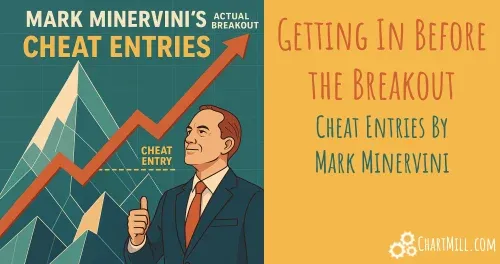
Mark Minervini’s Cheat Entries: Getting In Before the Breakout
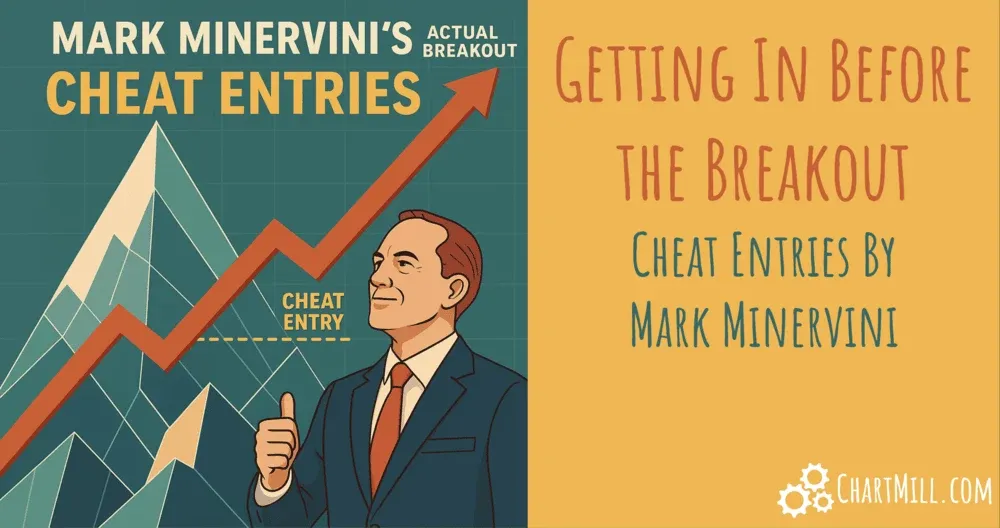
When it comes to trading momentum stocks, timing is everything. Legendary trader Mark Minervini, U.S. Investing Champion and author of Trade Like a Stock Market Wizard, is best known for his high-probability breakout strategies.
But what many traders overlook is one of his most tactical tools: the “cheat entry.”
Good to know: the cheat entry is part of the 3C Pattern (Cup Completion Cheat) as mentioned in his book, Trade Like a Stock Market Wizard (starting at page 243).
This strategy allows you to enter a stock early - before the actual breakout - giving you a low-risk, high-reward setup with tight stop-loss potential. Let’s break down what cheat entries are, how they work, and how to spot them using real chart examples.
What Is a Cheat Entry?
A cheat entry is a strategic early buy that occurs within a consolidation, before the stock clears a major resistance or base. It gives traders an opportunity to build a position early while keeping risk tight and measured.
Rather than chasing price after a breakout, cheat entries aim to get ahead of the move when:
-
Sellers are exhausted
-
Price action tightens
-
Volume contracts
-
Early signs of demand appear
Key Characteristics of a Cheat Entry
-
Tight Price Action: Price volatility narrows, often near a moving average or short-term support.
-
Micro Breakout or Pivot: The stock pushes through a minor resistance level inside the broader base.
-
Volume Dry-Up, Then Spike: Volume contracts, indicating seller exhaustion, followed by a small volume pop on the push.
-
Support Nearby: Often near the 10- or 20-day moving average, which provides a logical place for a tight stop-loss.
-
Early Strength: Look for stocks with rising relative strength and strong trend potential.
Low Cheat Area Example: BOW (Bowhead Specialty Holdings)
In this example, BOW formed a base after a multi-month decline. The low cheat area occurred as the stock began coiling just under the 50-day SMA. A subtle uptick within this area offered a low-risk cheat entry, ahead of the actual breakout.
Notice how the early entry level allowed traders to get in well before the breakout and manage risk tightly. After the breakout, price surged and even retested the breakout level—another possible entry for latecomers.
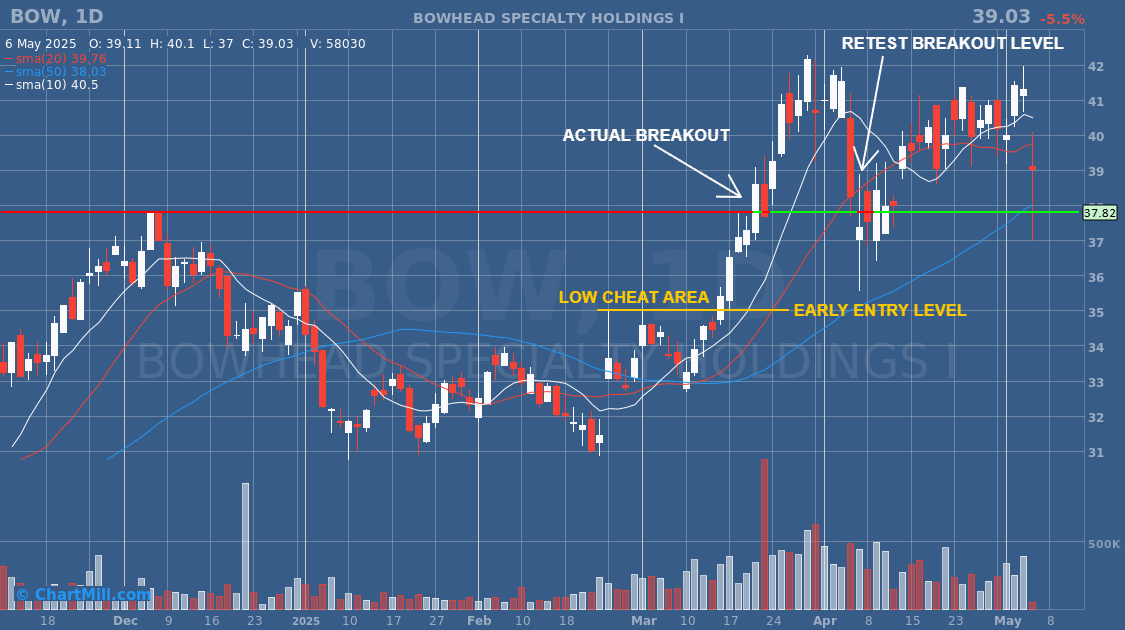
High Cheat Area Example: RSG (Republic Services)
Here, RSG presented a classic high cheat entry setup. The stock had already reversed sharply from a downtrend and was stair-stepping higher. A mini breakout inside the consolidation created an early opportunity.
The cheat area appeared as a micro base above the moving averages, offering a tight early entry with the breakout still ahead. After the breakout, the trend continued strongly, validating the early entry.
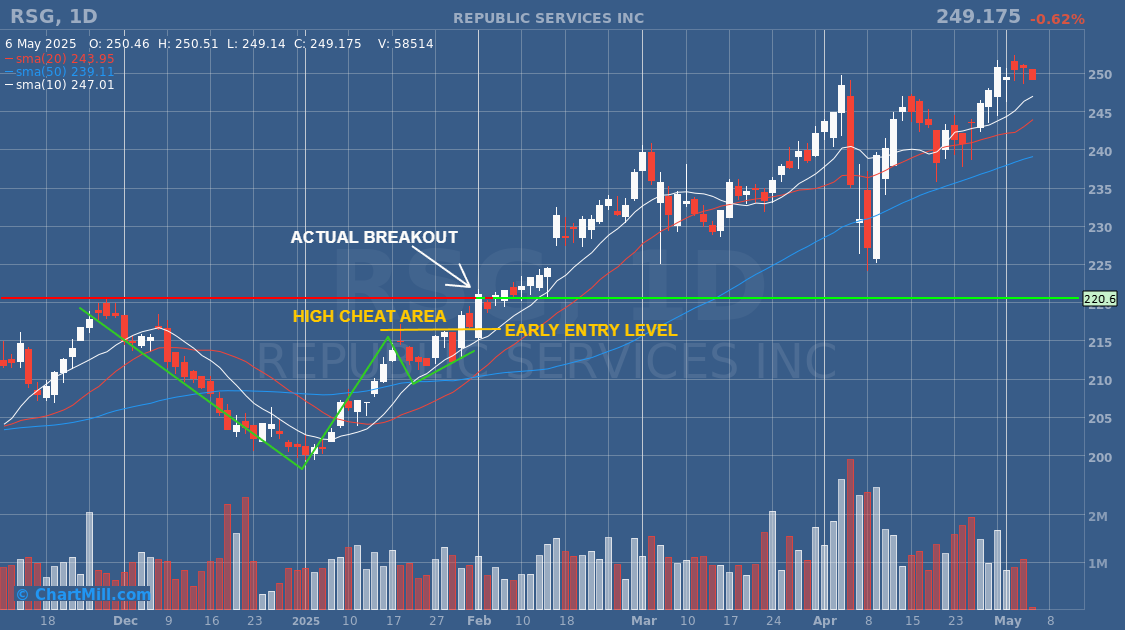
High Cheat Area Example: MCK (McKesson Corp)
MCK shows a textbook high cheat entry pattern during its run-up. After a V-shaped recovery, the stock paused and consolidated under resistance.
An early push through a minor resistance within that base allowed a high cheat entry. Traders who recognized the opportunity could enter with tight risk near the rising 10- and 20-day SMAs. The actual breakout followed shortly after, leading to a sustained uptrend and a successful retest of the breakout level.
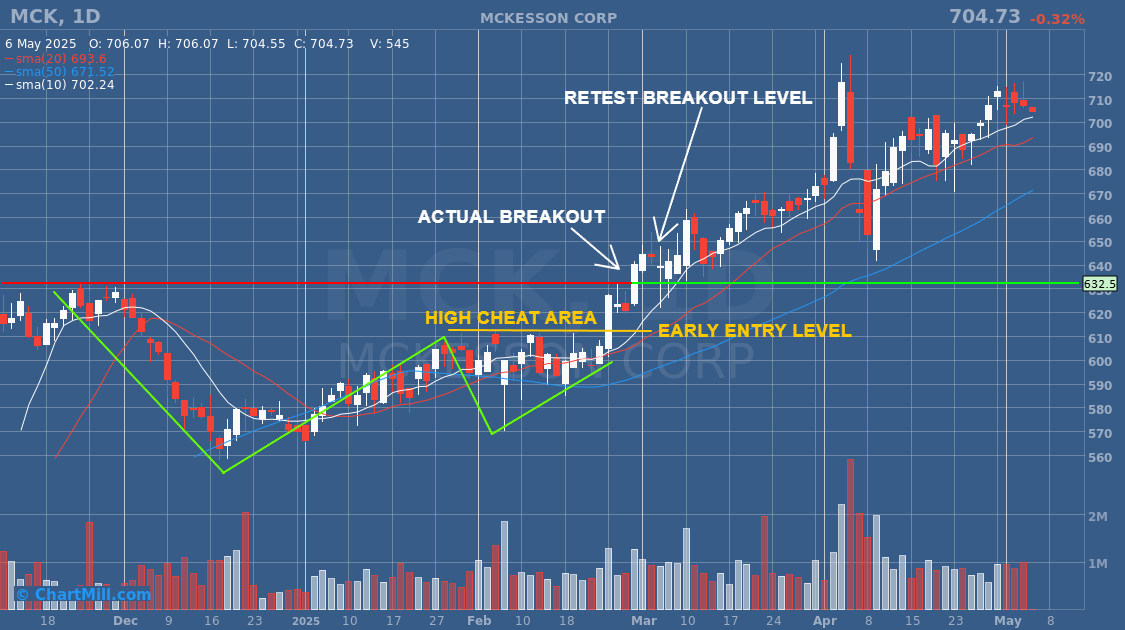
Mid Cheat Area Example: RPRX (Royalty Pharma)
RPRX offers a great look at a mid cheat entry setup. After bouncing sharply from a double bottom-like structure, the stock formed a smaller consolidation just below its prior highs. This mid cheat area provided an early entry for traders spotting the tightening range.
The early entry level lies just above a short-term trendline and near the converging 10- and 20-day SMAs. This type of cheat entry allows you to participate in a potential breakout before the actual breakout zone is tested—offering an excellent blend of timing and risk control.
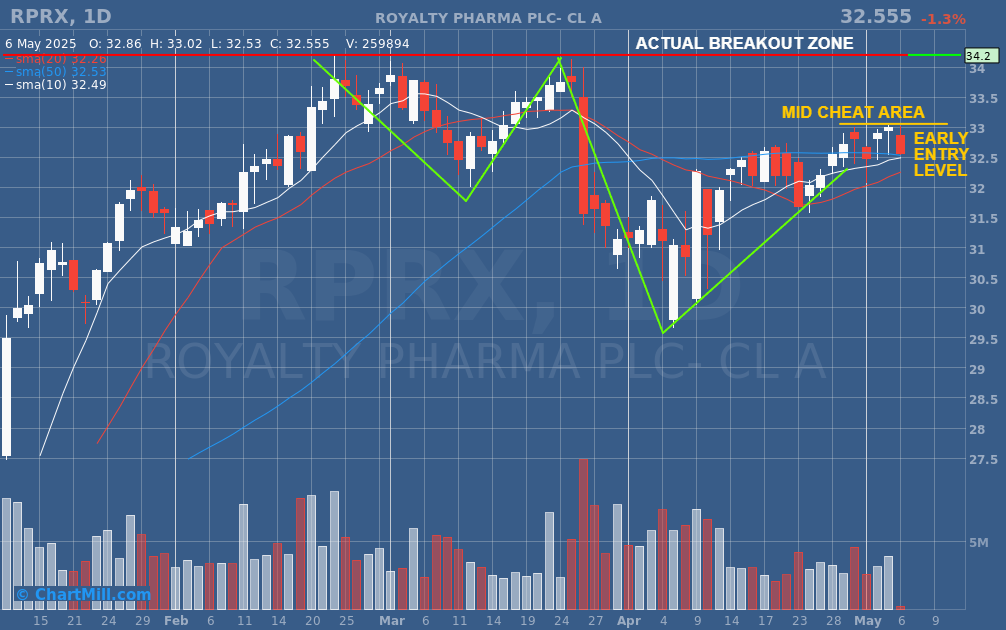
How to Scan for Cheat Entries with ChartMill
To find these types of setups, it is best to start from the Mark Minervini Trend Template Idea. You can read more about that in our separate article “Mark Minervini's Trend Template: A Step-by-Step Guide for Beginners.”
That way, you are sure to only consider stocks that are in a clear upward trend.
This is a direct link to a screen consisting of the Trend Template, supplemented by the following individual filters:
- Price above $5
- Minimum Daily Trading Volume > 500.000
- Market Cap at least 'Small' (+300M)
- ADR (20)% > 2
Final Thoughts
Mark Minervini’s cheat entry strategy is all about anticipating the breakout before it happens. When done correctly, it allows for early positioning, reduced risk, and higher reward.
But remember:
-
Only act on clean, low-risk setups.
-
Keep your stop-losses tight.
-
Scale in only when price confirms.
By adding cheat entries to your toolbox, you can improve your timing and catch more explosive moves, before the crowd even realizes what’s happening.






